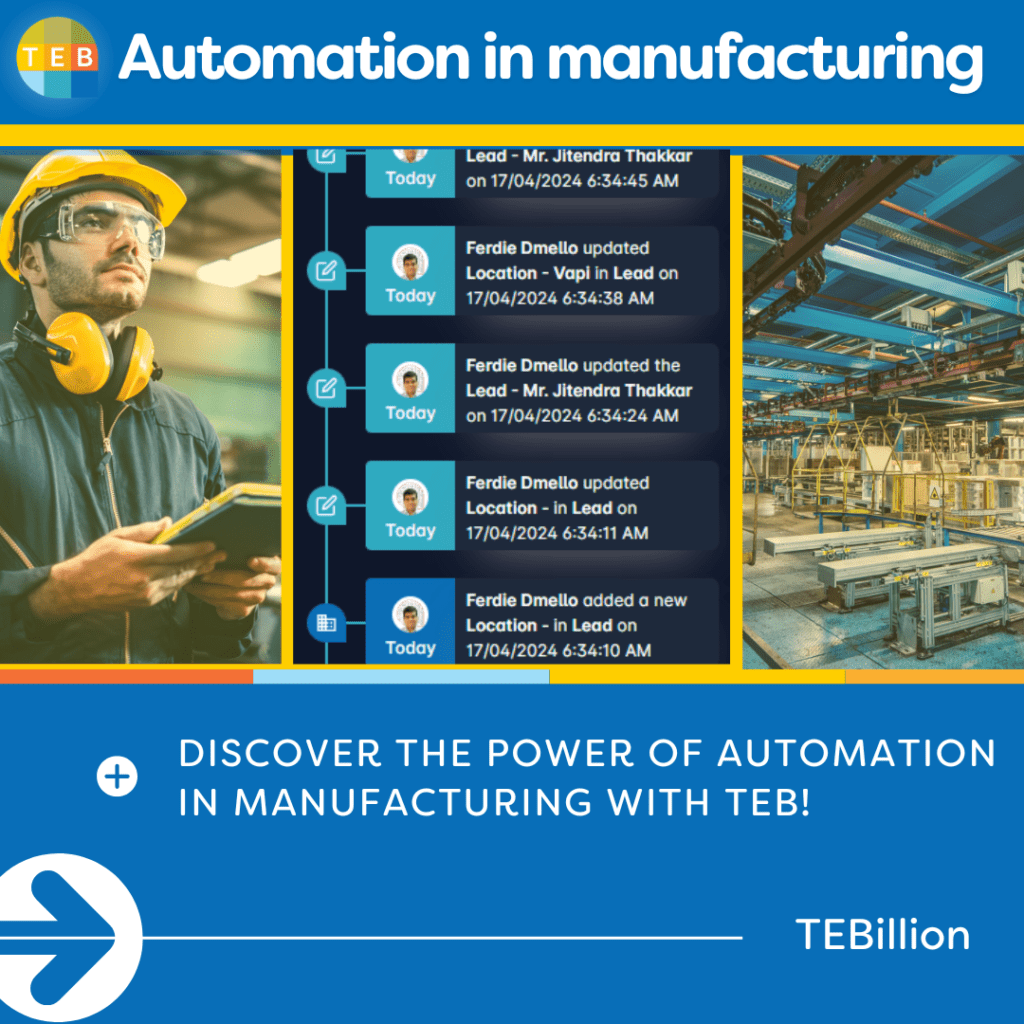
Manufacturing has always been an industry of innovation, evolving from manual production to the highly automated systems we see today. Modern manufacturers face increasing pressure to boost efficiency, reduce costs, and stay competitive — and automation has become the foundation for achieving this.
This article explores how automation connects production to sales, improves efficiency, and shapes the future of smart manufacturing.

Automation in manufacturing began decades ago, with early breakthroughs like Computer Numerical Control (CNC) in the 1960s and advanced control systems in the 1980s. Today, intelligent and data-driven automation defines the industry.
Manufacturers now use digital tools to manage productivity, efficiency, and quality across multiple sites. Data-driven Business Process Automation (BPA) aligns production schedules with real-time demand, enabling manufacturers to respond faster and operate more profitably.
Automation now powers predictive maintenance, streamlined operations, better training, and 24/7 production — helping manufacturers become more proactive and resilient in a fast-changing global market.
Modern software, such as TEB.io, integrates sales, billing, workforce, and marketing automation, creating a seamless link between production and operations.
The benefits of factory automation are undeniable. Businesses are adopting technologies like:
Smart automation enables manufacturers to use resources efficiently, gain live performance insights, and maintain consistency in output and safety. It reduces overheads, simplifies training, and ensures every process meets compliance standards.
As challenges like supply chain disruptions, ESG expectations, and resource restrictions grow, automation offers the stability and adaptability manufacturers need to stay competitive.
Manufacturing process automation bridges the gap between factory operations and sales teams, ensuring both work from the same real-time data.
It enables:

These systems reduce manual effort, accelerate fulfilment, and strengthen customer relationships — giving manufacturers a competitive edge in both production and sales.
Automation improves efficiency by standardising processes, eliminating human error, and ensuring consistent quality. With AI, CRM, and analytics integration, manufacturers gain insights into trends, customer behaviour, and demand patterns that guide decision-making.
Automation also helps manage repeat orders, send timely alerts, and maintain ideal stock levels — ensuring nothing is wasted and customer expectations are met.
When supported by a solid digital infrastructure, manufacturing teams stay aligned with market trends, improving productivity and profitability at every level.
Smart manufacturing continues to expand as data-driven decision-making becomes essential. Manufacturers are investing in connected technologies that bring together operations, sales, and service.
The future belongs to businesses that use automation to work intelligently — minimising waste, improving compliance, and adapting faster to global change. Whether managing multiple sites or scaling new operations, automation will remain central to long-term success.
TEB.io simplifies automation for manufacturers across every stage of production and sales. Backed by over 20 years of engineering excellence and trusted by more than 10,000 global customers, TEB helps businesses achieve measurable results.
Key features include:

Your business deserves a system that makes life simpler and supports sustainable growth. Book a demo today and see how TEB can streamline your manufacturing and sales operations from the shop floor to the sales desk.